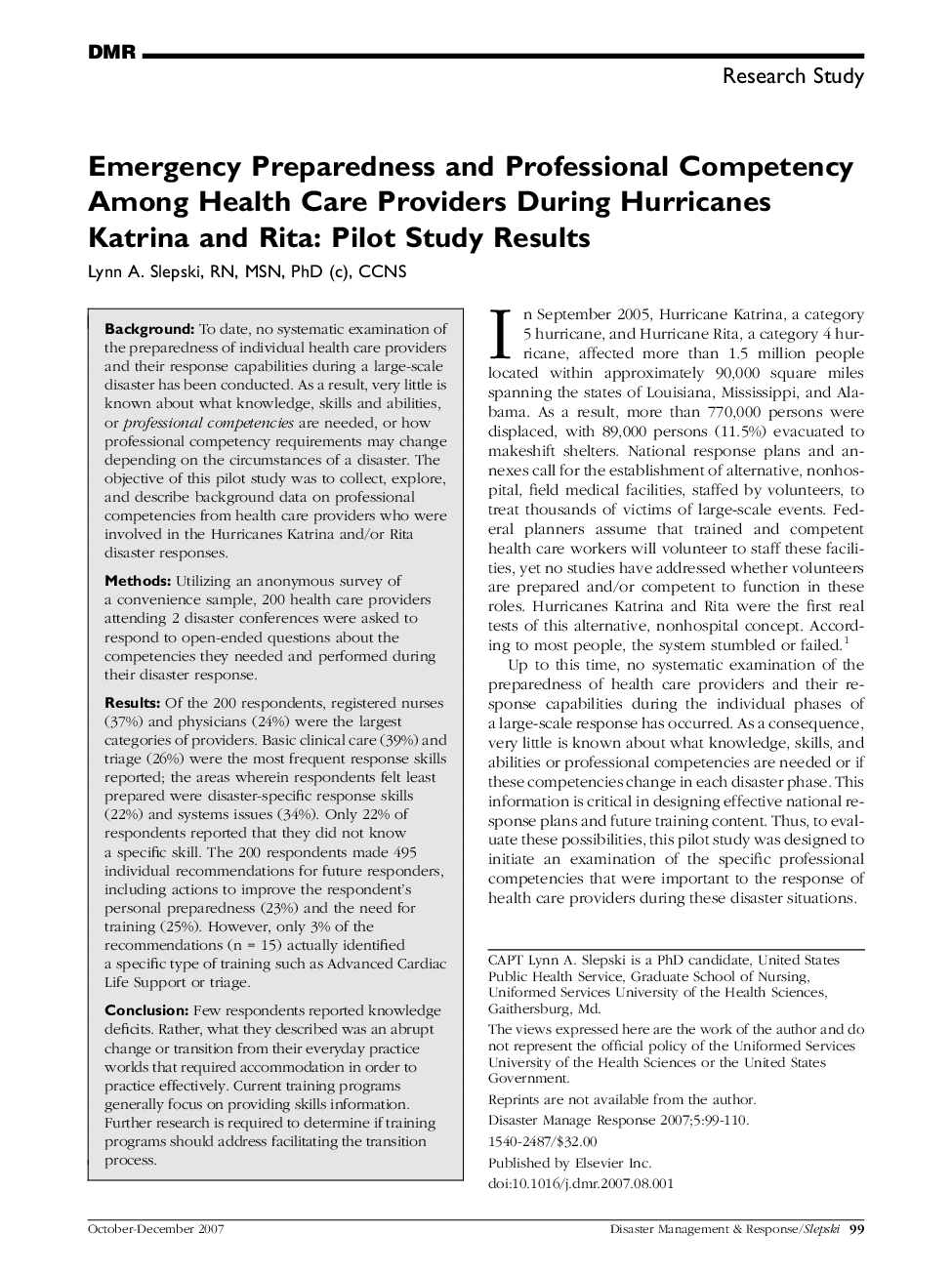| کد مقاله | کد نشریه | سال انتشار | مقاله انگلیسی | نسخه تمام متن |
|---|---|---|---|---|
| 2608206 | 1562811 | 2007 | 12 صفحه PDF | دانلود رایگان |

BackgroundTo date, no systematic examination of the preparedness of individual health care providers and their response capabilities during a large-scale disaster has been conducted. As a result, very little is known about what knowledge, skills and abilities, or professional competencies are needed, or how professional competency requirements may change depending on the circumstances of a disaster. The objective of this pilot study was to collect, explore, and describe background data on professional competencies from health care providers who were involved in the Hurricanes Katrina and/or Rita disaster responses.MethodsUtilizing an anonymous survey of a convenience sample, 200 health care providers attending 2 disaster conferences were asked to respond to open-ended questions about the competencies they needed and performed during their disaster response.ResultsOf the 200 respondents, registered nurses (37%) and physicians (24%) were the largest categories of providers. Basic clinical care (39%) and triage (26%) were the most frequent response skills reported; the areas wherein respondents felt least prepared were disaster-specific response skills (22%) and systems issues (34%). Only 22% of respondents reported that they did not know a specific skill. The 200 respondents made 495 individual recommendations for future responders, including actions to improve the respondent's personal preparedness (23%) and the need for training (25%). However, only 3% of the recommendations (n = 15) actually identified a specific type of training such as Advanced Cardiac Life Support or triage.ConclusionFew respondents reported knowledge deficits. Rather, what they described was an abrupt change or transition from their everyday practice worlds that required accommodation in order to practice effectively. Current training programs generally focus on providing skills information. Further research is required to determine if training programs should address facilitating the transition process.
Journal: Disaster Management & Response - Volume 5, Issue 4, October–December 2007, Pages 99–110